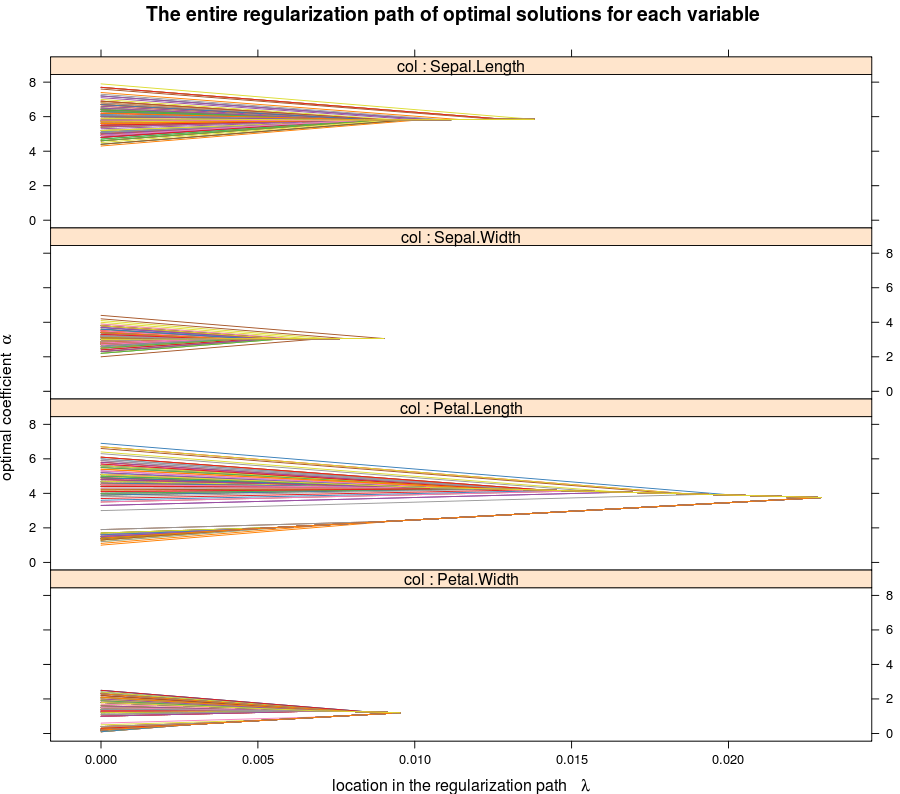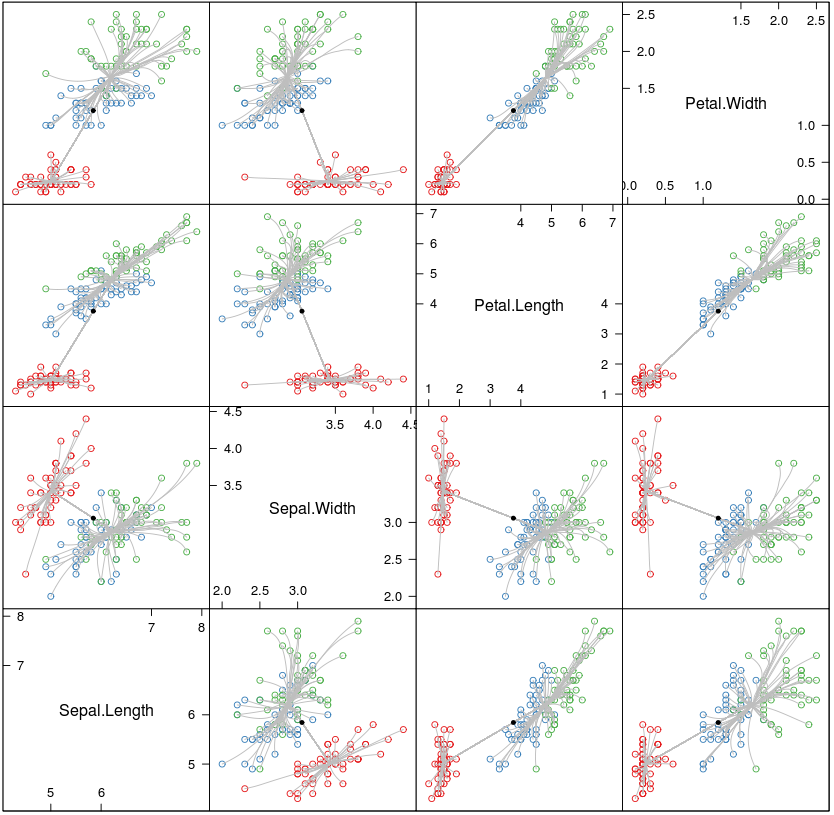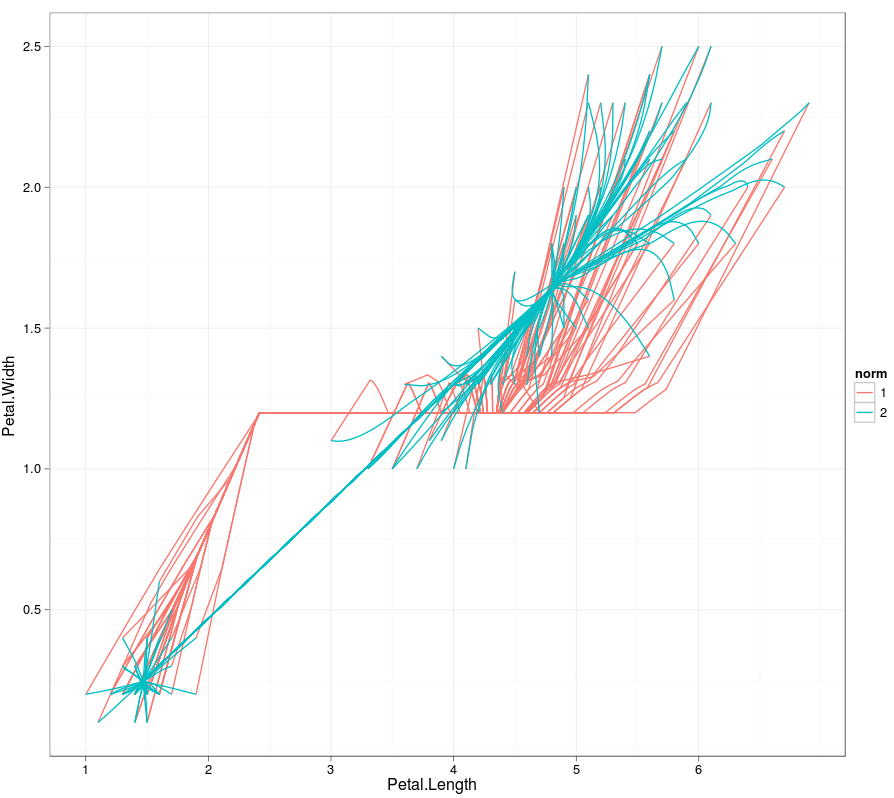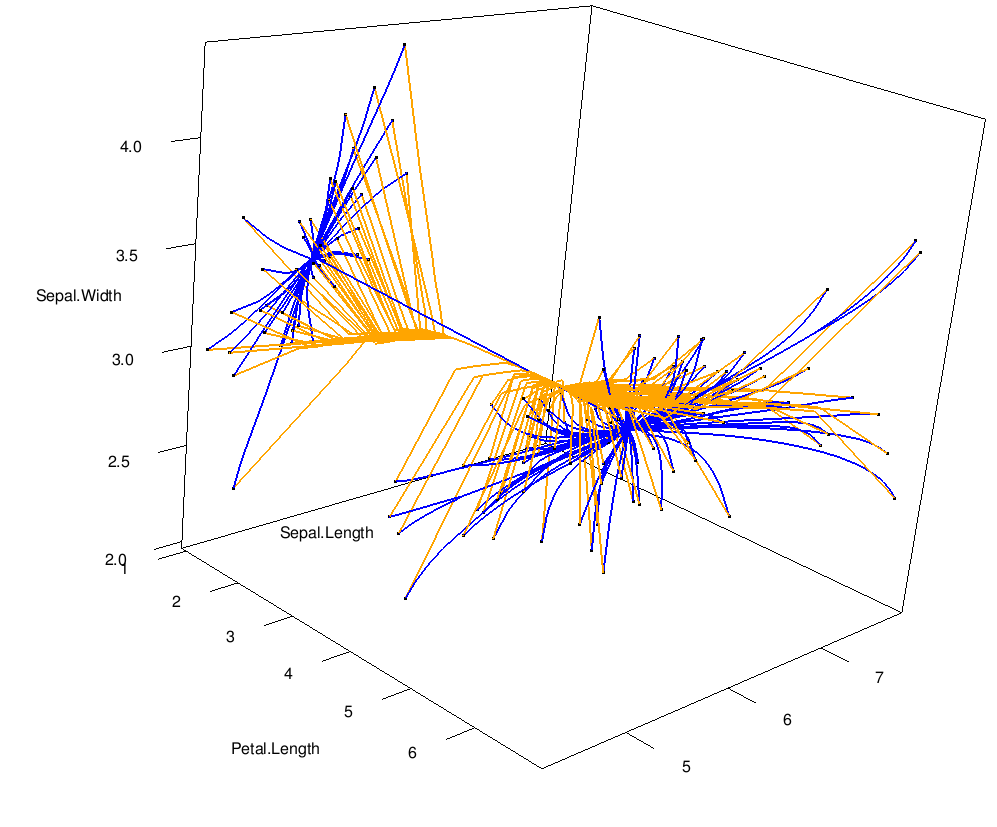Reference
The clusterpath package provides an R/C++ implementation
of the algorithms described
in Hocking
et al. Proceedings of the 28th International Conference on Machine
Learning (2011). If you use this software, please cite the
conference paper:
@InProceedings{Hocking-Clusterpath,
author = {Toby Hocking and Jean-Philippe Vert and Francis Bach and Armand Joulin},
title = {Clusterpath: an Algorithm for Clustering using Convex Fusion Penalties },
booktitle = {Proceedings of the 28th International Conference on Machine Learning (ICML-11)},
series = {ICML '11},
year = {2011},
editor = {Lise Getoor and Tobias Scheffer},
location = {Bellevue, Washington, USA},
isbn = {978-1-4503-0619-5},
month = {June},
publisher = {ACM},
address = {New York, NY, USA},
pages= {745--752},
}
Examples
To use the code, first install and load the package and its
dependencies in R.
install.packages(c("Rcpp","ggplot2","latticeExtra"))
install.packages("clusterpath",repos="http://r-forge.r-project.org")
You can also install clusterpath from source if you have Subversion:
system("svn checkout svn://scm.r-forge.r-project.org/svnroot/clusterpath/pkg/clusterpath clusterpath")
system("R CMD INSTALL clusterpath")
library(clusterpath)
## calculate the l1 clusterpath
breakpoints <- clusterpath.l1.id(iris[,1:4])
plot(breakpoints)
|

|
## calculate the weighted l2 clusterpath
path <- clusterpath.l2(iris[,1:4],gamma=1)
plot(path,groups=iris$Species)
|

|
## compare the 2 results.
## first find the multidimensional breakpoints:
bpts4d <- castbreakpoints(breakpoints)
## concatenate the solution path data.frames:
solutions <- rbind(bpts4d,path)
## plot the 2 paths using ggplot2:
ggplot(solutions,aes(Petal.Length,Petal.Width))+
geom_path(aes(group=interaction(row,norm),colour=norm))
|

|
## From examples(cluster3d), requires package rgl.
## Compares l1 and l2 paths in 3 dimensions.
cluster3d(iris[,1:3],gamma=1)
|

|
Troubleshooting
There are two versions of clusterpath: one that depends on Rcpp and
one that does not. Both contain the same functions for optimization
and clustering. If one does not work, try installing the other:
install.packages("clusterpath",repos="http://r-forge.r-project.org")
library(clusterpath)
install.packages("clusterpathRcpp",repos="http://r-forge.r-project.org")
library(clusterpathRcpp)
Also, you may have to install
a more recent version of R.
Other clusterpath solvers
Below is a list of all the clusterpath solvers that I know
of. Please write me an email if I missed anything!
Back to
the
R-Forge project page.



